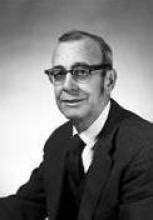A Quote by Stanley Hauerwas
William James was not a prophet. He was a philosopher whose philosophy reflected his profound humanity.
Quote Topics
Related Quotes
In Philosophy, the contemplations of man do either penetrate unto God, or are circumferred to Nature, or are reflected and reverted upon himself. Out of which several inquiries there do arise three knowledges, Divine Philosophy, Natural Philosophy, and Human Philosophy or Humanity. For all things are marked and stamped with this triple character of the power of God, the difference of Nature and the use of Man.
PICARD: There is no greater challenge than the study of philosophy. WESLEY: But William James won't be in my Starfleet exams. PICARD: The important things never will be. Anyone can be trained in the mechanics of piloting a starship. WESLEY: But Starfleet Academy PICARD: It takes more. Open your mind to the past. Art, history, philosophy. And all this may mean something.
I have always taken as the standard of the mode of teaching and writing, not the abstract, particular, professional philosopher, but universal man, that I have regarded man as the criterion of truth, and not this or that founder of a system, and have from the first placed the highest excellence of the philosopher in this, that he abstains, both as a man and as an author, from the ostentation of philosophy, i. e., that he is a philosopher only in reality, not formally, that he is a quiet philosopher, not a loud and still less a brawling one.
Many people have written about the economic meaning of globalization; in One World Peter Singer explains its moral meaning. His position is carefully developed, his tone is moderate, but his conclusions are radical and profound. No political theorist or moral philosopher, no public official or political activist, can afford to ignore his arguments.
BERTRAND RUSSELL, The Philosophy of Logical Atomism We've associated that word philosophy with academic study that in its own way has gotten so far beyond the layman that if you read contemporary philosophy you've no clue, because it's almost become math. And it's odd that if you don't do that and you call yourself a philosopher that you always get 'homespun' attached to it.






































